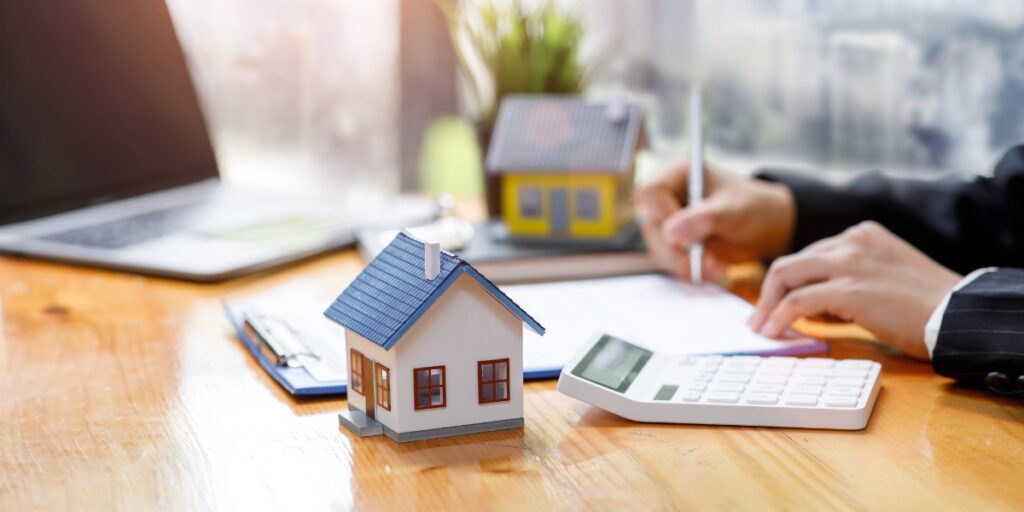Commercial building finance plays a crucial role in the real estate sector. Whether you’re looking to invest in a new property, expand your existing portfolio, or start a new business, understanding how to finance Commercial building finance can be the key to success. In this article, we’ll dive deep into everything you need to know about commercial building finance, from what it is, to how to secure it, and what types of loans are available.
What Is Commercial Building Finance?
Commercial building finance refers to the various financial products used to fund the purchase, construction, or renovation of commercial real estate. Home loan Dubai can include office buildings, retail spaces, industrial properties, and multifamily apartment buildings. The main goal of commercial building finance is to provide the necessary funds to either develop or acquire properties that can generate income, whether through rent or capital appreciation.
Why Is Commercial Building Finance Important?
Securing the right financing for a commercial building is critical. It can impact your cash flow, the success of your investment, and your ability to manage risks. Proper finance can:
- Allow for property acquisition and development
- Maximize profitability by increasing property value
- Provide the capital needed for business expansion or renovation
Types of Commercial Building Finance
There are several options when it comes to financing commercial properties. Each option comes with its own benefits, risks, and requirements.
1. Commercial Mortgages
Commercial mortgages are one of the most common types of commercial building finance. They work similarly to residential mortgages but are specifically designed for commercial properties. These loans are typically longer-term (5 to 20 years) and come with fixed or variable interest rates.
2. Construction Loans
If you are looking to build a commercial property from scratch, a construction loan is a suitable option. These short-term loans are designed to finance the cost of construction, including materials, labor, and permits. Once construction is complete, the loan is usually converted into a permanent commercial mortgage.
3. SBA 504 Loans
The Small Business Administration (SBA) offers SBA 504 loans to finance the purchase of commercial real estate. These loans offer lower down payments and favorable interest rates, making them an attractive option for small businesses. The SBA 504 program is designed to help businesses grow by providing affordable financing options.
4. Hard Money Loans
Hard money loans are short-term loans provided by private lenders, rather than traditional banks. These loans are based on the value of the property rather than the borrower’s creditworthiness, making them ideal for individuals who may not qualify for traditional loans. However, they come with higher interest rates and shorter repayment periods.
5. Bridge Loans
Bridge loans are short-term financing options used to bridge the gap between the purchase of a property and the sale of an existing property, or when you need quick financing for a property purchase. These loans are often used in situations where time is critical, and a longer-term solution isn’t available.

How to Secure Financing for Commercial Building Projects
Securing financing for commercial real estate can be a complex process. Here are the steps you should follow to increase your chances of getting approved:
1. Assess Your Creditworthiness
Before applying for financing, it’s essential to assess your creditworthiness. Lenders typically look at your personal credit score, business credit score, and the financial health of your business or investment entity. A strong credit score can help you secure better interest rates and more favorable terms.
2. Prepare a Solid Business Plan
Lenders want to see that you have a well-thought-out plan for the property. This includes financial projections, the purpose of the property, and the expected return on investment. The more detailed your business plan is, the more likely lenders will approve your application.
3. Have Sufficient Down Payment
Commercial loans usually require a higher down payment than residential loans. Typically, lenders expect a down payment of 20-30% of the property’s value. Having a larger down payment reduces the lender’s risk and shows that you are financially committed to the project.
4. Provide Collateral
For commercial real estate loans, lenders may require collateral in the form of the property itself or other assets. Offering collateral helps secure the loan and reduces the lender’s risk.
5. Shop Around for Lenders
There are many types of lenders, including traditional banks, credit unions, private lenders, and online lenders. It’s important to shop around for the best interest rates and terms that suit your financial situation and project needs.
Key Considerations Before Applying for Commercial Building Finance
Before applying for commercial building finance, there are several factors you should consider to ensure you’re making the right choice for your investment:
1. Loan Terms and Interest Rates
The terms and interest rates of a loan will have a significant impact on your monthly payments and overall costs. Make sure to compare the loan offers and assess which terms best align with your business goals.
2. Repayment Period
Commercial building finance loans typically have repayment periods ranging from 5 to 20 years. A shorter repayment period may result in higher monthly payments but will save you money on interest in the long run.

3. Loan Fees
Some commercial loans come with various fees, such as origination fees, processing fees, and closing costs. Be sure to understand all the costs involved in obtaining the loan to avoid unexpected expenses down the line.
4. Lender’s Requirements
Different lenders may have varying requirements for loan approval, including specific qualifications or conditions. It’s important to understand what the lender expects from you before applying.
5. Economic Conditions
The broader economic conditions, such as interest rates, market trends, and inflation, can affect your financing options. Stay informed about the current economic environment to make informed decisions about your loan.
Risks Involved in Commercial Building Finance
Like any investment, commercial building finance comes with risks. Here are some risks to consider before moving forward:
- Interest Rate Fluctuations: If you opt for a variable-rate loan, changes in interest rates can significantly increase your monthly payments.
- Market Volatility: Changes in the real estate market, such as declining property values or reduced rental demand, can affect your return on investment.
- Loan Default: If you are unable to repay your loan, the lender may seize the property, which can result in significant financial loss.
Conclusion
Navigating the world of commercial building finance can seem challenging at first, but with the right knowledge and preparation, it can be a rewarding investment. By understanding the types of loans available, knowing how to secure financing, and considering the risks, you can make informed decisions that align with your goals. Always ensure that you are working with reputable lenders and have a solid business plan to increase your chances of success.
FAQs
1. What is the difference between commercial and residential loans?
Commercial loans are for properties used for business purposes, while residential loans are for homes or apartments. Commercial loans often have higher interest rates and stricter requirements.
2. How much down payment is needed for commercial real estate?
Typically, a down payment of 20-30% of the property’s value is required for a commercial real estate loan.
3. Can I get a commercial loan with bad credit?
While it’s possible to get a commercial loan with bad credit, it may be more difficult and come with higher interest rates. Consider working with alternative lenders or securing the loan with collateral.
